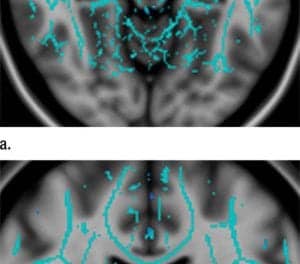Recovery from MS-like symptoms in mice depends on the ability of the CNS’s own immune cells — microglia — to break down the remains of damaged cells, such as myelin, Karolinska Institutet researchers suggest, in Science Immunology.
This may possibly explain how the disease progresses in mice and how it can be reversed, and could prove valuable to future treatments, according to a media release from Karolinska Institutet.
Tends to Worsen Over Time
MS is a life-long disease with symptoms that most often gradually worsen over time. In the majority of cases the disease comes in bouts with a certain amount of subsequent recovery. A gradual loss of function with time is, however, inevitable. Research has made great progress in treatments that reduce the frequency and damaging effects of these bouts.
“Despite these important breakthroughs, the disease generally worsens when the patient has had it for 10 to 20 years.
“There is currently only one, recently approved, treatment for what is called the secondary progressive phase. The mechanisms behind this progressive phase require more research.”
— Maja Jagodic, docent of experimental medicine at the Department of Clinical Neuroscience and the Centre for Molecular Medicine, Karolinska Institutet
Atg7 a Factor in Breakdown Processes?
The breakdown processes were interrupted when the researchers removed a so-called autophagy gene, Atg7. Autophagy is a process where cells normally break down and recycle their own proteins and other structural components.
Without Atg7 the ability of the microglia to clean away tissue residues created by the inflammation was reduced. These residues accumulated over time, which is a possible explanation for the progressiveness of the disease.
The study also suggests how microglia from aged mice resemble the cells from young mice that lacked Atg7 in terms of deficiencies in this process, which had a negative effect on the course of the disease.
“The plant and fungi-derived sugar Trehalose restores the functional breakdown of myelin residues, stops the progression and leads to recovery from MS-like disease.
“By enhancing this process we hope one day to be able to treat and prevent age-related aspects of neuroinflammatory conditions.”
— doctoral student Rasmus Berglund
[Source(s): Karolinska Institutet, Science Daily]
Related Content:
Multiple Sclerosis Therapy Possible in Breast Milk
How Pregnancy Could Delay Multiple Sclerosis Onset
Multiple Sclerosis Protection is Nuts





